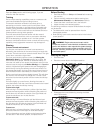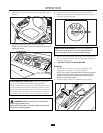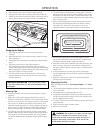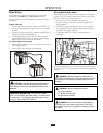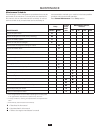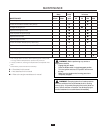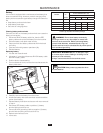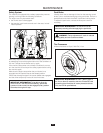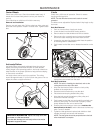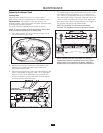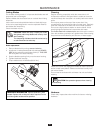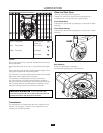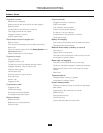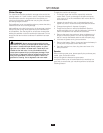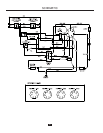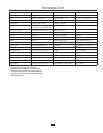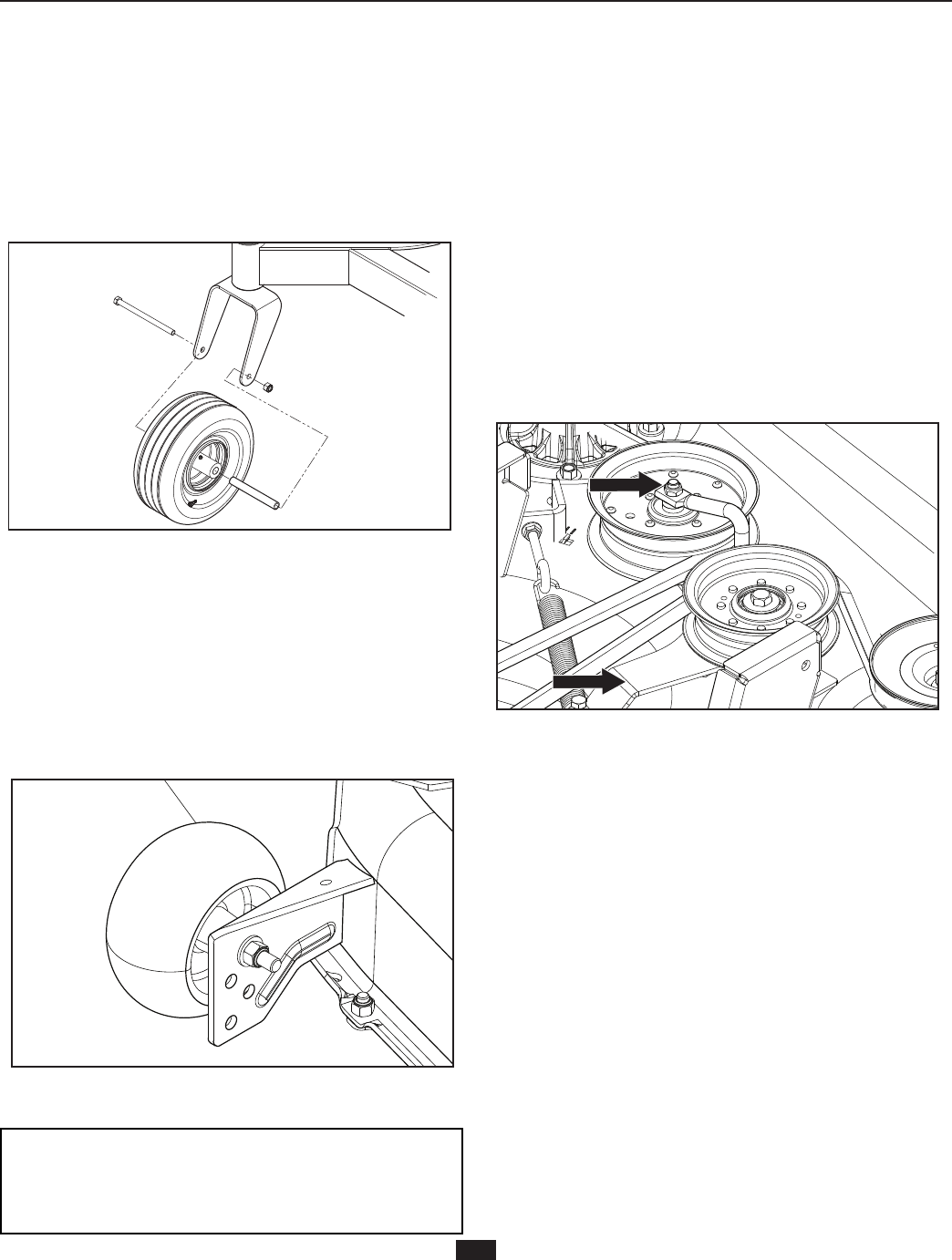
24
MAINTENANCE
Caster Wheels
Check every 200 hours. Check that wheels rotate freely. If
wheels do not rotate freely take the unit to your dealer for
service.
Foam filled tires or solid tires will void the warranty.
Removal and installation
Remove nut and caster bolt. Pull the wheel out of the yoke and
take care of the spacers. Install in reverse order. Tighten caster
bolt.
IMPORTANT INFORMATION Adjust anti-scalp rollers with
the mower on a flat level surface.
To avoid deck damage, the anti-scalp rollers must not be
adjusted to support the deck.
Anti-scalp Rollers
Anti-scalp rollers are properly adjusted when they are just
slightly off of the ground when the deck is at the desired
cutting height in the operating position. Anti-scalp rollers then
keep the deck in the proper position to help prevent scalping
in most terrain conditions.
Anti-scalp rollers can be set in four positions. The rollers
should be approximately ¼" (6.5 mm) from the ground. Do not
adjust the rollers to support the deck.
V-belts
Check every 100 hours of operation. Check for severe
cracking and large nicks.
NOTE: The belt will show some small cracks in normal
operation.
The belts are not adjustable. Replace belts if they begin to slip
from wear.
Deck Belt Removal
1. Park on a level surface. Apply park brake.
2. Lower the deck into the lowest cutting position.
3. Remove bolts from belt shields and remove shields.
4. Remove any dirt or grass that may have accumulated
around the cutter housings and entire deck surface.
5. Loosen the nut securing the belt guide. Note the position
of the belt guide for reinstallation.
6. Push inward on the idler arm to release the tension on the
belt.
7. Carefully lift the belt over the top of the cutter housing
pulleys and remove belt from the deck.
Deck Belt Installation
NOTE: For ease in installing the deck belt, refer to the
routing decal on the top of the deck.
1. Wrap the deck belt around the electric clutch pulley
located on the engine shaft.
2. Route the belt forward and up onto the deck.
3. Place belt around spring loaded idler pulley.
4. Wrap the belt around the stationary idler pulley and
around the mandrel housings.
5. Push inward on the idler arm and carefully route belt over
stationary idler pulley. Once the belt is properly routed,
slowly release the idler arm to tension belt.
6. Double check belt routing to make sure it matches the
decal affixed to the deck, and the belt does not have any
twist. Correct if needed.
7. Tighten the belt guide and replace belt shields on both
mandrel housings and secure with fasteners.
NOTE: The belt guide should be perpendicular to the belt
when installation is complete.



